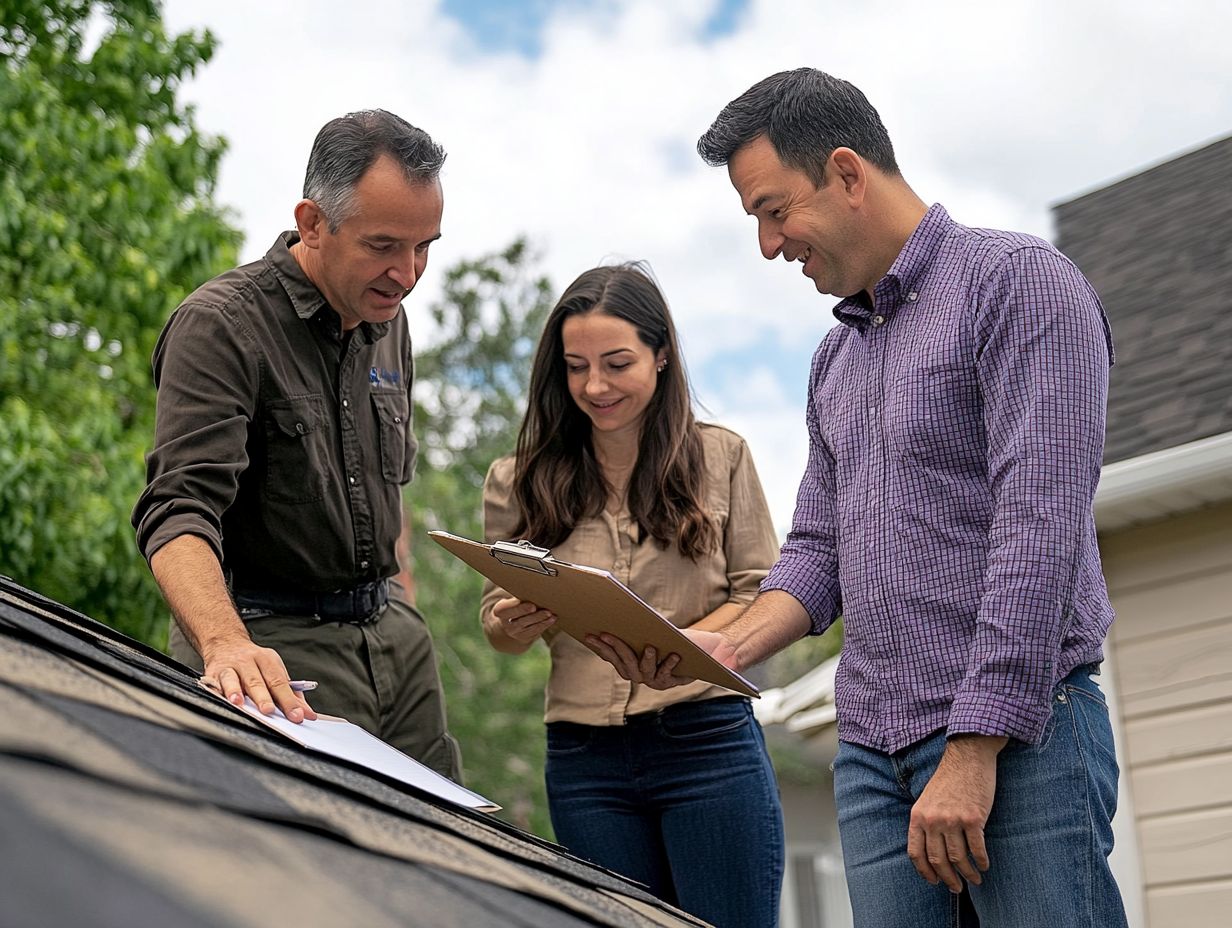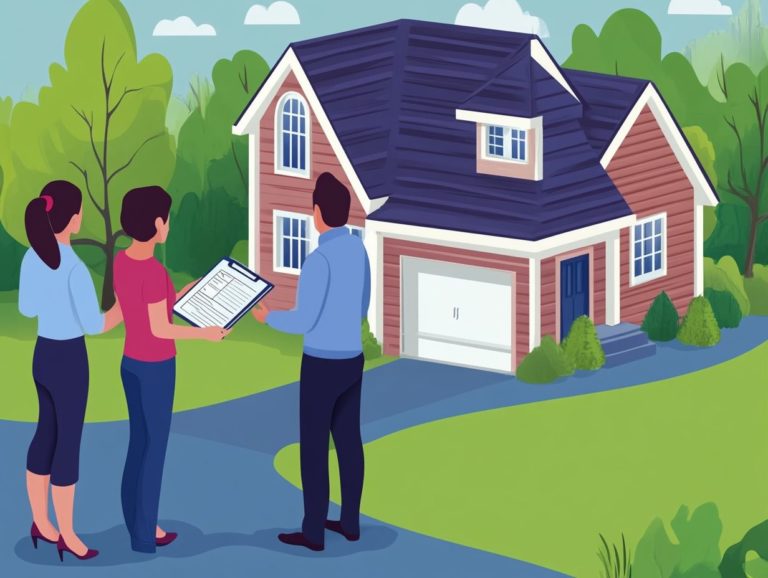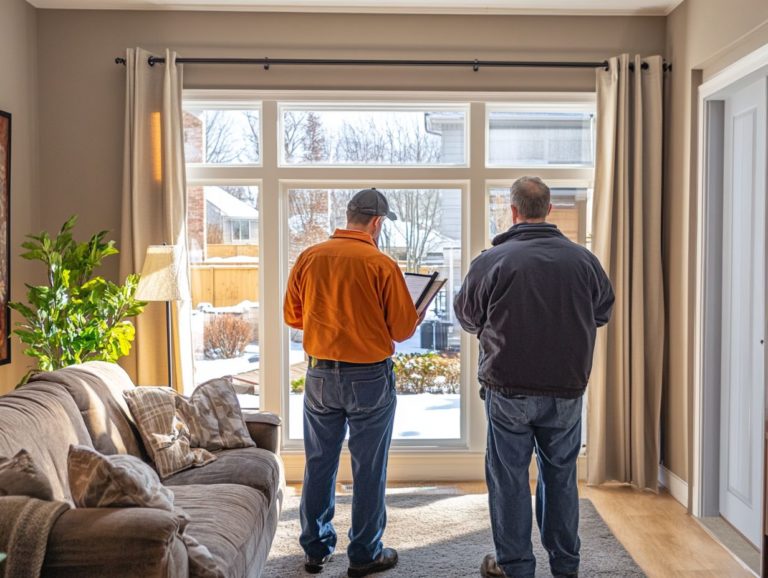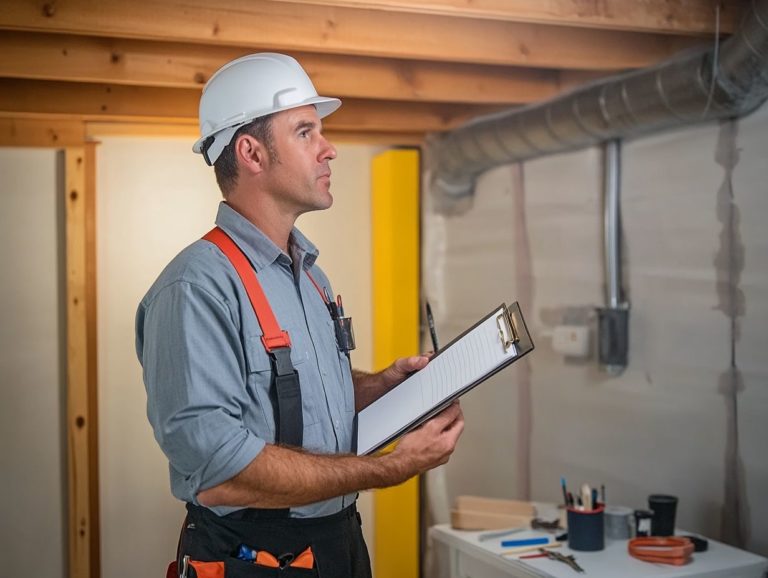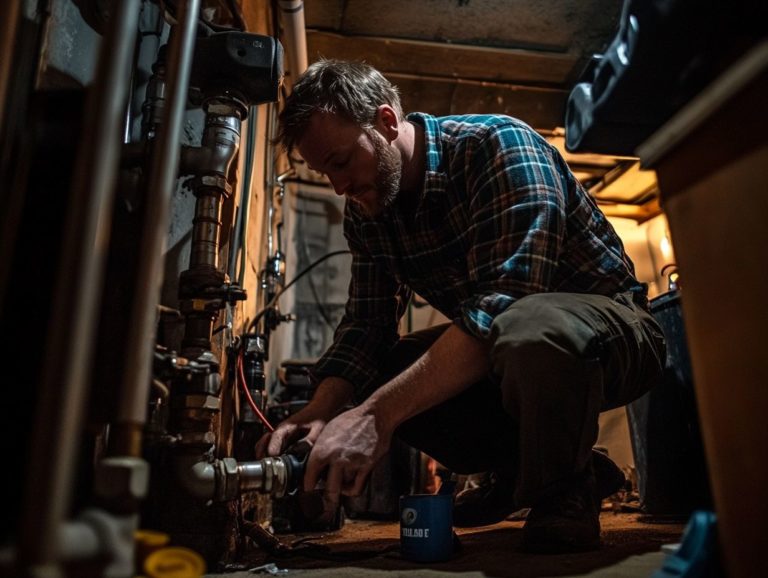Understanding the Home Inspection Process
Buying a home is undoubtedly one of the most significant investments you ll ever make, so ensuring that your future property is in pristine condition is essential.
A home inspection is a critical step in this journey, allowing you to uncover potential issues and gain the peace of mind you deserve.
In this article, you’ll discover what a home inspection entails, the key moments when you should schedule one, what to expect during the inspection, common concerns that may arise, and how to select the right inspector for your needs.
By the end, you ll be equipped with the knowledge to navigate your home-buying journey with confidence and assurance.
Contents
Key Takeaways:
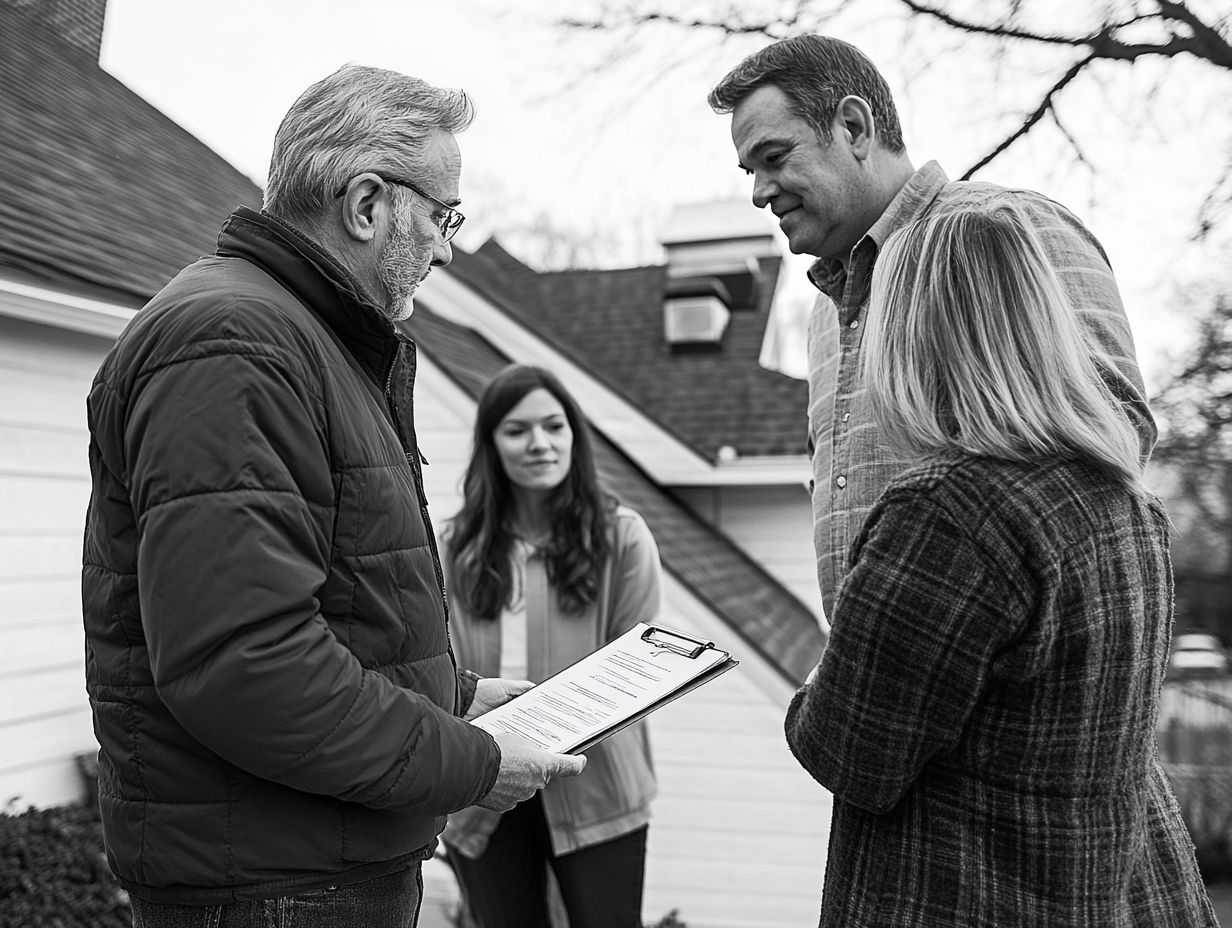
Home inspections are essential! They help you spot problems before buying or selling.
Key times to get a home inspection include before purchasing a home, prior to listing a home for sale, and for routine maintenance and upkeep.
The home inspection process involves a thorough evaluation of the property’s structural, electrical, and plumbing systems, as well as other important components. For more details, refer to our guide on understanding the home inspection process.
What is a Home Inspection?
A home inspection is an in-depth evaluation of a property, usually carried out by a qualified inspector, aimed at looking over the property and finding any problems that could influence your decision during the home inspection process while buying a home.
This crucial step is your last chance to find issues, identify hidden concerns, and negotiate effectively before you finalize the purchase agreement.
Purpose and Importance
The primary purpose of a home inspection is to provide you with a clear understanding of the property’s condition, including any serious issues that may demand immediate attention or a significant financial commitment. For sellers, understanding the home inspection process is crucial for a successful sale.
This insight is invaluable during negotiations, giving you the power to advocate for necessary repairs or request price adjustments based on the deficiencies identified in the inspection report.
By emphasizing critical issues highlighted in the report, you can strategically leverage these findings in discussions with sellers, often leading to a more favorable agreement.
Furthermore, the consequences of these inspections extend to home appraisals; a property’s condition can significantly influence its assessed value.
Thus, a thorough home inspection not only protects your investment but also enhances your bargaining power in a competitive market.
When to Get a Home Inspection
Timing plays a pivotal role in the home inspection process. Ideally, inspections should be conducted after you’ve had your offer accepted but before the closing date. For more details, refer to our guide on understanding the home inspection process timeline. This ensures that all parties are fully informed about the property’s condition, allowing for a smoother and more transparent home purchasing experience.
Key Times for a Home Inspection
Key moments for a home inspection include right after your offer is accepted, during the period when you check everything before buying, and just before finalizing the sale. These are your last chances to address any concerns before moving forward. These moments are crucial for pinpointing potential issues with the property and for negotiating necessary repairs or credits with the seller prior to closing the deal.
During the due diligence period, having a solid inspection checklist at your side proves invaluable, steering you through essential areas like the roof’s condition, plumbing integrity, and the electrical systems.
For instance, if you happen to uncover outdated wiring, that could spark a conversation about necessary upgrades or even a price reduction. By coming prepared with a checklist, you ensure that no significant detail slips through the cracks, ultimately safeguarding your investment and gifting yourself peace of mind.
What to Expect During a Home Inspection

During a home inspection, expect a thorough assessment of the home’s systems and structures, leading to a detailed report that highlights any major issues requiring attention. For a deeper insight, refer to understanding the home inspection process for buyers.
Step-by-Step Process
The step-by-step process of a home inspection focuses on assessing key components such as plumbing systems, electrical systems, HVAC, and the overall structure. Understanding this process of home inspections is essential for providing a detailed inspection report.
The inspector typically starts by examining the exterior of your home. They look for issues like foundation problems, roof conditions, and drainage systems.
Once they move inside, they delve into the integrity of your walls, ceilings, and flooring. They ensure there are no signs of moisture damage or structural concerns.
Important systems like plumbing and electricity will undergo thorough evaluations. This includes checking for potential leaks and safety compliance.
After the inspection wraps up, all findings complete with photographs and detailed descriptions of any deficiencies or maintenance needs will be compiled into a comprehensive report. This report becomes an invaluable tool for you as a prospective buyer, aiding in your decision-making process.
Common Issues Found During a Home Inspection
During a home inspection, you ll frequently encounter common issues that warrant attention. Structural problems may arise, along with outdated or malfunctioning plumbing systems.
Electrical systems might have code violations. There could also be various safety concerns that pose risks to occupants.
Being aware of these issues can help you make informed decisions about your property.
Structural, Electrical, and Plumbing Concerns
Structural, electrical, and plumbing concerns rank among the most critical findings during a home inspection. These issues can lead to significant repairs and impact the overall safety and functionality of the property.
You must address these issues immediately to avoid costly repairs! For example, a compromised foundation may lead to uneven floors and wall cracks, diminishing the home’s value.
Electrical issues, such as outdated wiring, present serious fire hazards if not upgraded. This puts both lives and property at risk.
Similarly, plumbing problems like leaks or outdated pipes can result in water damage and mold growth, eventually leading to serious health risks.
As a homebuyer, being aware of these potential consequences enables you to make informed decisions and take the necessary actions to secure a safe living environment.
Costs and Considerations for a Home Inspection
The costs associated with a home inspection can fluctuate significantly. These costs are influenced by the property’s size, location, and any special services you might need.
This variability often leaves many buyers pondering who is responsible for covering the inspection fee and what elements contribute to the total cost.
Factors Affecting Cost and Value
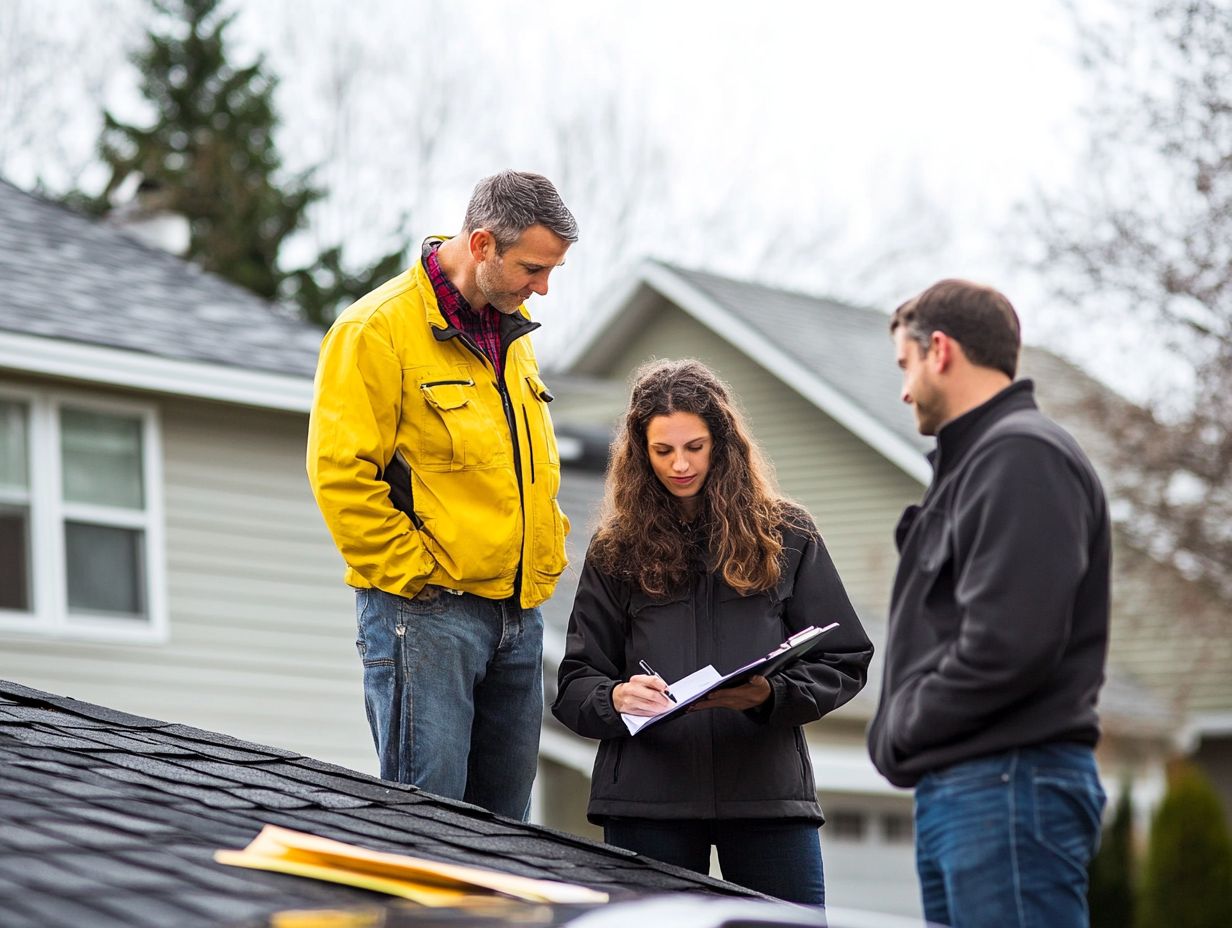
Factors influencing the cost of a home inspection include the property’s age, size, location, and the complexity of the inspection itself. These elements can significantly affect its overall value in your home buying journey.
These factors are not just about the inspection expenses; they also shape the appraisal process that follows. Older homes might require more extensive assessments because of outdated materials or systems, driving up costs.
The property’s size plays a crucial role as well. It dictates the time and resources needed for a comprehensive evaluation.
Location is another key factor; properties in urban areas often come with additional fees due to the higher demand for inspection services.
Understanding these intricacies can give you valuable negotiation leverage. By grasping how these variables interact, you empower yourself to make informed decisions and potentially lower costs during negotiations.
Choosing the Right Home Inspector
Selecting the right home inspector is an essential step in your home-buying journey. It s crucial to ensure that they possess the necessary qualifications and credentials, often endorsed by the American Society of Home Inspectors.
This guarantees that you receive a thorough and dependable evaluation of your prospective property.
Ready to schedule your home inspection? Contact us today!
Qualifications and Credentials to Look For
When hiring a home inspector, you should seek out qualifications such as certification from the American Society of Home Inspectors, relevant experience, and a solid track record of thorough inspections.
This ensures that your inspector not only possesses the essential knowledge of building codes and construction practices but also understands the local market nuances that can influence property conditions.
Inspectors who actively engage in continuing education show a commitment to staying updated with evolving best practices and technologies.
It s also wise to check for reviews or testimonials from previous clients; firsthand experiences can provide invaluable insights into the inspector s attention to detail and professionalism.
Ultimately, selecting an inspector with the right blend of credentials and experience can profoundly impact the quality of your inspection reports.
Frequently Asked Questions
What is the purpose of a home inspection?
The purpose of a home inspection is to assess the overall condition of a property, identify any potential issues or concerns, and provide a detailed report to the potential buyer or homeowner. Understanding the home inspection report helps the buyer make an informed decision about the property and can alert the homeowner to any necessary repairs or maintenance.
Who typically conducts a home inspection?
A qualified and licensed home inspector typically conducts a home inspection. They have the knowledge and expertise to thoroughly assess the property and provide an unbiased report of their findings. To ensure an accurate inspection, it is important to understand the importance of home inspections and hire a reputable and experienced home inspector.
What areas of the home does a home inspection cover?
A standard home inspection typically covers the main structural components of the home, including the foundation, roof, exterior walls, plumbing, electrical systems, HVAC, and appliances. Some inspectors may also offer additional services for an extra fee, such as testing for radon or mold.
How long does a home inspection usually take?
The duration of a home inspection can vary depending on the size and condition of the home. On average, a standard home inspection can take anywhere from 2 to 4 hours to complete. However, larger or more complex properties may take longer.
Can I attend the home inspection?
Yes, as the buyer or homeowner, you have the right to attend the home inspection. It can be beneficial to be present during the inspection to ask questions and gain a better understanding of the inspector’s findings. However, it is not required, and some inspectors may prefer to conduct the inspection without anyone present.
What happens if issues are found during the home inspection?
If issues or concerns are identified during the home inspection, the buyer and seller will need to negotiate on how to address them. The buyer may request that the seller make repairs or provide a credit towards the cost of repairs. If an agreement cannot be reached, the buyer may have the option to back out of the sale. It is essential to have a real estate agent or lawyer to assist with this process.

